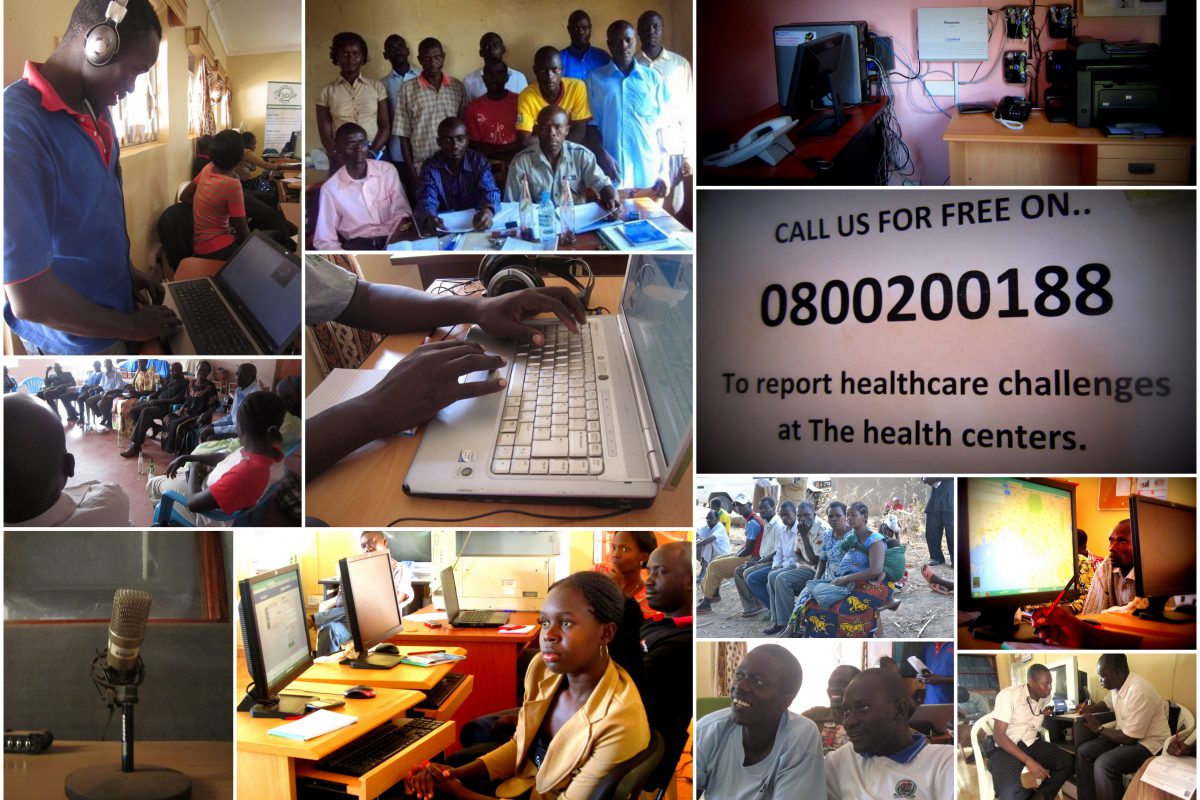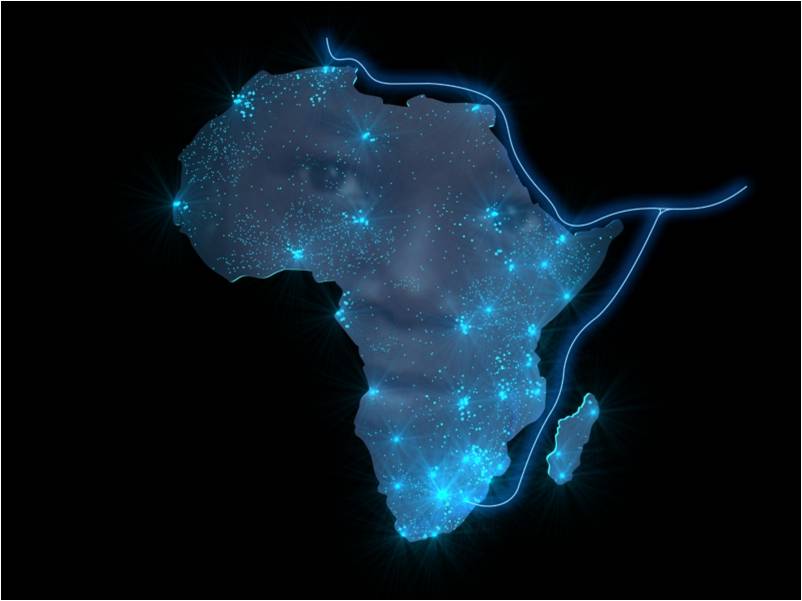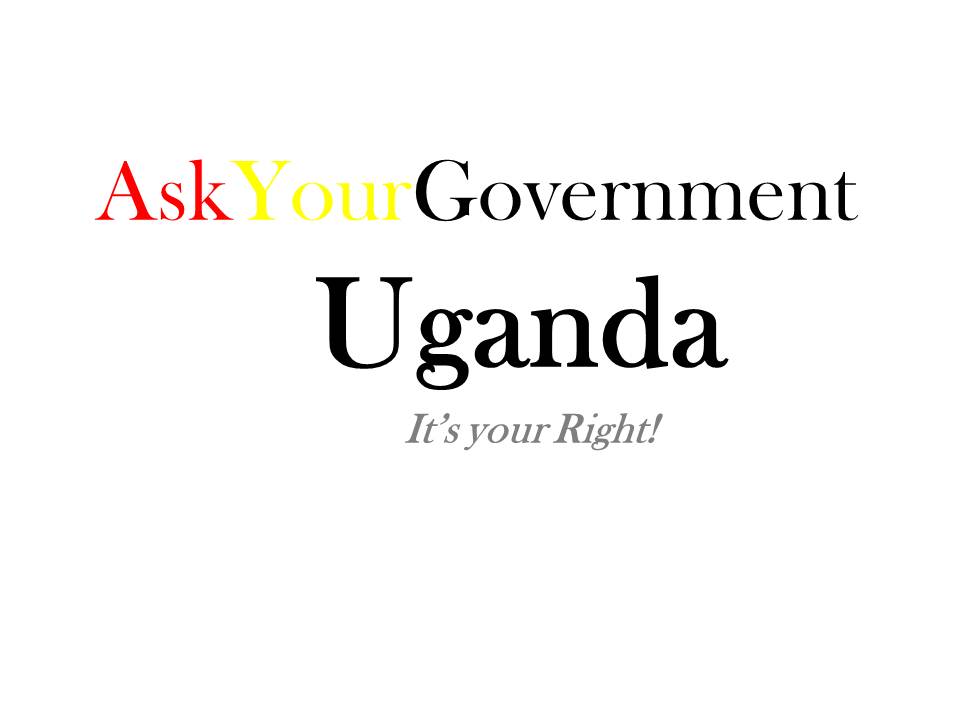By Emily Mullins
In early July, the Collaboration on International ICT Policy in East and Southern Africa (CIPESA) met with members of the Northern Uganda Media Club (NUMEC) to discuss the Peace Recovery and Development Project (PRDP). First launched in October 2007, the PRDP sought to improve livelihoods in post-conflict Northern Uganda. Its stated objectives were to consolidate state authority, rebuild and empower communities, revitalise the economy, and to promote peace and reconciliation.
Individual projects to achieve these objectives included enhancing the rule of law, providing equipment and logistics to strengthen law enforcement, build and staff health centres, schools, and building roads, bridges, and market facilities. The plan also claimed that in the process, it would prioritise according to the concerns of the communities within which it was working.
To date, many feel that the ambitious program has not lived up to its hype and has instead been in a state of ongoing corruption and mismanagement of funds. NUMEC members presented cases of mismanagement and poor oversight, leading to devastating results. In particular, many of the contractors who were awarded construction projects implemented sub-standard work, with structures and roads crumbling after only a few years of use. NUMEC cited one example of a health centre that functioned as no more than an abandoned home once winds blew off the poorly constructed roof.

In other cases, contractors simply did not finish the project, cashing their cheques and abandoning the communities with half-built structures. In one such case, teachers at a PRDP-funded school are still living in overcrowded and poorly sanitised conditions, four years after permanent lodging was supposed to be built. One problem is that there is little or no accountability and oversight on these projects.
Another problem has been that of visibility. One reporter noted that citizens have difficulties knowing which programs are part of PRDP and which are non-PRDP development initiatives. The PRDP does not adequately advertise its proposed projects, so citizens may not even be aware that they should be expecting a service. When citizens are unaware of what promises the government is making to them, they have no reason to be upset when said services never appear. It leaves the government unaccountable for its actions, and wastes public funds. Without transparency on proposed projects, the people have no way to demand accountability.
The increased pushes for open data have, however, helped. For example, the PRDP has a website on which the Office of the Prime Minister – the initiative’s coordinating office – publishes budgets, workplans and reports. However, the danger in such pushes for “transparency” is that it can allow for complacency. Having marked the check box for open data, the government can avoid true accountability. Not all citizens posses the technological skills or resources to access the data and understand it. For many, the information might as well be in a different language, and in the most rural areas, where use of the English language is not as widespread, it is.
This is where the media can come in. The media serves as an intermediary between the government and the people. When the government provides the information, the media ought to have the tools to interpret the data, and turn it into something meaningful for its consumers. While rural populations may not have consistent access to the internet or social media, journalists have the opportunity to take the information from such sources and transmit it through more ubiquitous technology, such as print and radio.
With the availability of new technologies like geospatial analysis and infographics come new opportunities to tell simple, yet powerful visual stories with the data. Providing citizens with information empowers them to make better demands from public officials. As one journalist noted, “even if major news sources do not want to pick up a story, if the social media and grassroots sources generate enough buzz, they force the story to the forefront.”
This is not to say that the media should only focus on watchdogging. Reports on failures or mismanagements are important, but if the media only concentrates on the negative surrounding PRDP, it risks disengaging the public. For the public to be actively engaged, it needs to believe in the capacity for PRDP to succeed, and it especially needs to believe that its voice will be heard and that administrators will be responsive to demands. This necessitates, then, that the media seek out and also report on success stories. A hope for improvement is just as necessary to transparency as the recognition of failures.
The PRDP has the potential to help shape Northern Uganda’s recovery process, but it requires diligence from the government, the media, and citizens. It is within the power of citizens to force accountability from the government, but only if they have the right information. This is where the media can make a difference: by taking the data provided by the government, and making it relevant for the people, the media can keep the public eye on PRDP projects, both for its success and its shortcomings. The tools are there, it is only a matter of using them.
Members of NUMEC received training on the use of geospatial analysis tool, ArcGIS carried out by AidData Summer Fellow Emily Mullins who was stationed at CIPESA during June – August 2014. She holds a Masters in International Affairs from the George Bush School at the Texas A&M University, USA.
ICT4Democracy in East Africa: Promoting Democracy and Human Rights Through ICTs
Established in 2011, ICT4Democracy in East Africa is a network of organisations working to promote democracy and human rights through Information and Communication Technologies (ICTs) in Kenya, Uganda and Tanzania. Across the three countries, partners are leveraging on mobile short message service (SMS), toll free call centre, FM radio, social media, crowd sourcing platforms and direct community engagement to implement projects that tackle issues such as corruption, service delivery, respect for human rights, freedom of expression and access to information.
The projects are driven by the shared vision of the immense potential that ICTs have in increasing citizens’ participation in decision-making processes and strengthening democratisation.
The partner organisations are: the Collaboration on International ICT Policy for East and Southern Africa (CIPESA), Commission for Human Rights and Good Governance (CHRAGG), iHub Research, Kenya Human Rights Commission (KHRC), Toro Development Network, Transparency International Uganda and Women of Uganda Network (WOUGNET).
The network is supported by the Swedish International Development Cooperation Agency (Sida) and the Swedish Program for ICT in Developing Regions (Spider). CIPESA is the network regional coordinator.
Read more about the network in the profile publication here.
African Declaration on Internet Rights and Freedoms for Launch at 2014 IGF
The African Declaration Drafter’s Group is pleased to present the African Declaration on Internet Rights and Freedoms which will be released on September 4 at the Internet Governance Forum (IGF) in Istanbul, Turkey, and on September 8 at Highway Africa Conference in Grahamstown, South Africa.
CIPESA's Reflections on the Third Africa Internet Governance Forum, 2014
Uganda Launches Portal to Support Citizens’ Right to Information
14 August 2014
Press Statement
For immediate release
Uganda Launches Portal to Support Citizens’ Right to Information
The Office of the Prime Minister (OPM) through the Ministry of Information and National Guidance today launched the Ask Your Government (AYG) online platform (www.askyourgov.ug) at the Imperial Royale Hotel, Kampala. AYG is an initiative of the OPM in partnership with the Collaboration on International ICT Policy in East and Southern Africa (CIPESA) and the Africa Freedom of Information Centre (AFIC). It is aimed at promoting Ugandan citizens’ right to information in support of transparency, accountability and good governance.
Uganda was amongst the first African countries to adopt Right to Information (RTI) legislation with the passing of the Access to Information Act of 2005. The AYG portal allows citizens to directly send requests for information to information officers in Government departments, ministries and agencies. Responses to the information requests are relayed directly to the email address of the person who makes the requests and are also publicly displayed on the portal.
While Uganda currently has an internet reach of 20% of the population, this initiative will work alongside civil society organisations to ensure that digitally under-represented citizens including people living in rural areas and women can make information requests through the platform. Its wider target audience also includes general citizens with targeted efforts geared at journalists, researchers, university lecturers, and students.
The launch was officiated by Hon. Rose Namayanja Nsereko, Minister of Information and National Guidance who highlighted the changes that government has undertaken in improving information availability within government and amongst Ugandan citizens. She noted, “The tool avails to Ugandans an opportunity to access public information. We as government can also use the platform when planning by identifying the types of information that citizens most request.” She also added that the platform will increase public scrutiny of the Ugandan government and enhance transparency and accountability to citizens.
In his opening remarks, Simon Mayende, Director at the Ministry of Information and National Guidance (MING) in the OPM stressed the commitment of the Ministry towards “ensuring that the public access information held by all public bodies.” He added that“there should be no barriers of this right of citizens.” The launch was attended by media as well as information officers from various government offices who will be the key drivers of the success of the platform. Also present were members of civil society organisations and development partners.
Activities at the launch included a round table discussion. Panellists included Moses Watasa, Commissioner with the OPM/MING and representatives of civil society organisations including Gilbert Sendugwa (AFIC), Wairagala Wakabi (CIPESA), Patrick Tumwine (Human Rights Network), Jude Odaro (Uganda Debt Network) and MareikeLe Pelley (Friedrich-Ebert-Stiftung).
Discussions explored topics such as Ugandan citizens’ rights to information as per the Access to Information Act, 2005 and accountability. It also explored the integral role that Information Communication Technologies (ICTs) play in promoting engagement between government, civil society and ordinary citizens.
Mr.Odaro commended the Government for building an elaborate legal and institutional framework to facilitate access to public information by citizens as a critical aspect of development. “This in the long run will help citizens understand government development priorities and plans while enhancing awareness and ownership of development initiatives,” he said. He also stressed the work that has to go into sensitising government officials for increased commitment towards right to information.
Mr.Wakabi stated that the increased proliferation of ICTs in the country provided immense opportunities for government to operrationalise existing legal frameworks and improve social accountability. Indeed, Mr.Watesa pointed out that the AYG website was an important tool in government’s efforts to improve communication with citizens – an area that government hasn’t been doing very well in.
Discussions were followed by the unveiling of the website through a demonstration in which a query on the ministerial policy statement for the Office of the Prime Minister for the year 2014/2015 was requested.
The live demonstration highlighted the simplicity of registering an account and making a direct request to government for swift responses while at the same time creating a library of queries and responses that can be accessed by other visitors to the website who may have similar questions.
A user guide was distributed amongst all those present to help them navigate through the processes of requesting and responding to information queries.
The website launch marks the commitment that government has towards making public information easily accessible to the citizens of Uganda while also providing an effective, cheaper and less time consuming solution to requesting information from the country’s public bodies.
Ask your Government is available on social media:
Facebook page: https://www.facebook.com/askyourgovug
Twitter @AskYourGovUg
For further information please contact
https://www.facebook.com/askyourgovug
Twitter: @AskYourGovUg
Hashtag: #AYGUganda
Email: [email protected]
| Ministry of Information and National Guidance – Office of the Prime Minister (OPM)Plot 9-11 Apollo Kaggawa Road,
Kampala, Uganda Tel: +256 417770500 |
Collaboration on International ICT Policy in East and Southern Africa (CIPESA)Plot 156-158 Mutesa II Road, Ntinda Kampala, Uganda Tel:+256 414 289 502 |
Africa Freedom of Information Centre (AFIC)Plot 5 Katego Road, Kamwokya
Kampala, Uganda Tel: +256 414 533554 |





